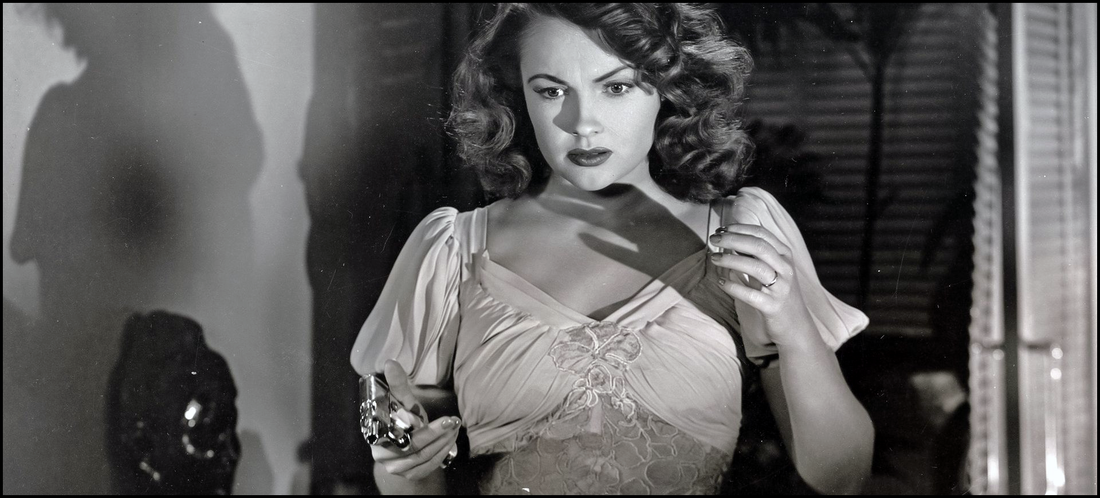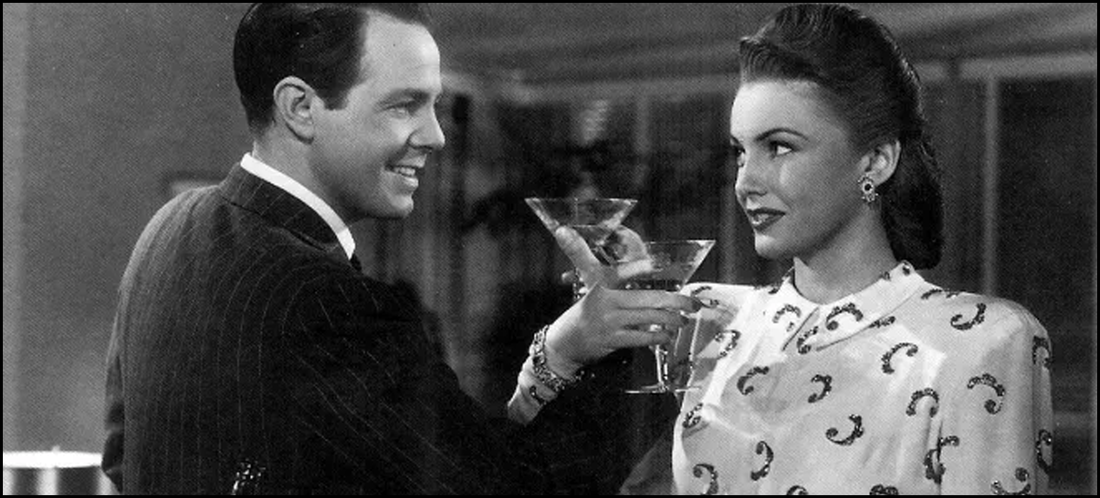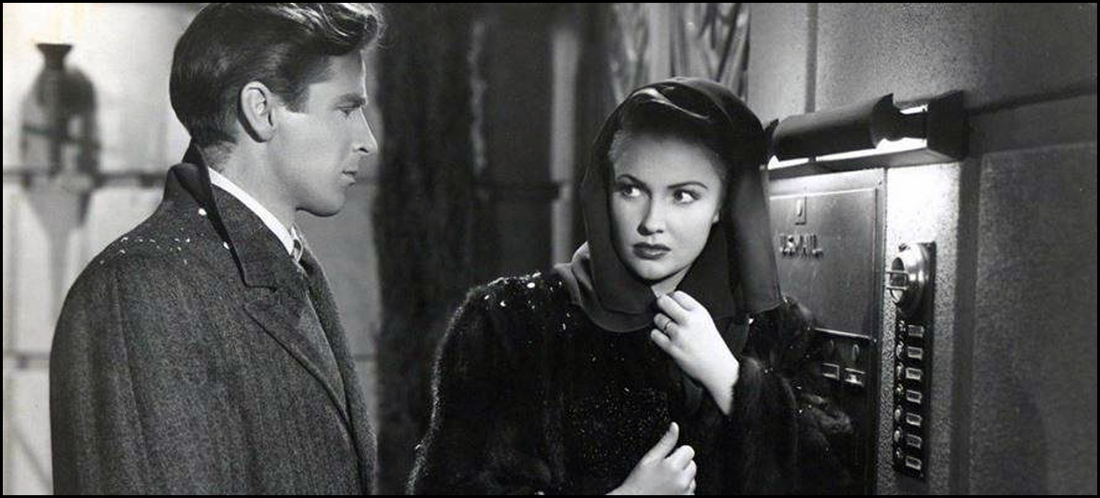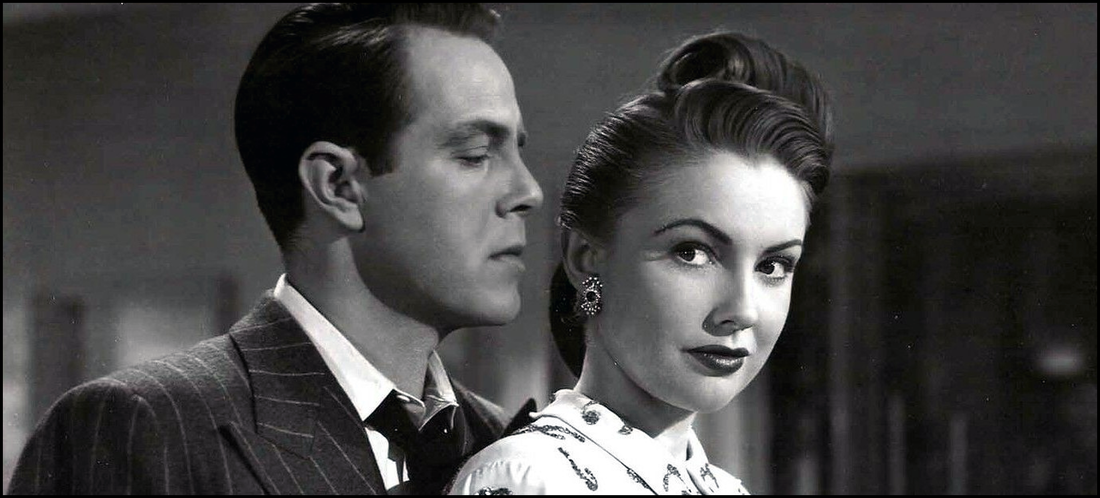Running for five years on network television, the Zone played host to any number of great performances, and every one of them were trapped smack in the middle of the great ‘what if’ story. What if man went to another planet only to find he wasn’t alone? What if there’s a way to change history without travelling through time? What if you can return from the afterlife but only to serve one certain purpose? These were the yarns that captivated audiences when they originally aired, and the show continues to delight audiences who rediscover it from time-to-time either in syndicated airings or on home video. It’s even had a reinvention or two for posterity’s sake, and I suspect we’ll likely see another one in the years ahead. The stories are just that timeless that they lend themselves to remakes and reboots.
Well … what if I told you that The Twilight Zone wasn’t the first property to explore the whole idea of what if? What if an earlier motion picture – one called cleverly Repeat Performance – toyed with the idea more than a decade before?
That brings us to today’s exploration of a recently explored cinematic gem: Alfred L. Werker’s directs this black-and-white potboiler that’s probably a bit more melodrama than it needed to be. The film boasts a great central performance from the late Joan Leslie as well as a solid supporting one from the late Richard Basehart. While it may not be an entirely perfect theatrical affair, it certainly explores a few behind-the-scenes affairs but rendering this dark tale under the rubric of Fantasy might require audiences to suspend a bit more disbelief than was probably intended.
You be the judge.
From the product packaging:
“An amazingly original hybrid of film noir, supernatural fantasy, and backstage melodrama, Repeat Performance stars Joan Leslie as a Broadway actress who magically relives the previous year of her life, but can she alter the fateful mistakes and misjudgments that led to a New Year’s Eve tragedy?”
Which of us hasn’t wanted a do-over?
That central idea is essentially most of what this Repeat Performance is all about: Sheila Page (played by Joan Leslie) ends her year in the worst way possible – shooting dead her philandering husband in their posh apartment on New Year’s Eve. (FYI: we’re not given a lot of specifics on this event, but we do learn a few specifics as the story unfolds, so be patient.) Realizing this’ll likely be the end to her very own life, she makes a wish and voila! The universe magically responds! In the blink of an eye, she’s transported back in time twelve months with the opportunity to do it all over again and maybe – maybe – just get things right this time.
Therein lies the rub, as anyone can imagine: are the events of our life fated, or can we truly institute lasting changes and achieve some more storied existence?
As this story evolves, it becomes increasingly clear that perhaps Page isn’t as powerful a figure in her own universe as the set-up implies, nor does she appear to be a person of particularly good judgment. So far as this reviewer is concerned, she’s made a series of – ahem – truly bad choices in her life, including falling in love with and marrying Barney Page, a failed screenwriter turned alcoholic who can’t keep his eyes or his hands to himself. Why she would want to save this relationship never quite gets explained nor explored in the script from Walter Bullock (adapted from a novel by William O’Farrell); there are never any moments of true love shared between the husband and wife, though the man occasionally flirts with his significant other when not carousing with her friends.
Still, the remainder of Repeat Performance’s players don’t offer much hope for decent folk, either.
Paula Costello (Virginia Field) plays another self-centered playwright, one who isn’t above stealing another’s husband, casting him out when she’s finished with him, and misdirecting him with murderous intent back to the little lady waiting at home. Bess Michaels (Benay Venuta) steals every scene she’s in but can’t bring herself to lacing her observations with insulting barbs directed at everyone but herself. And Eloise Shaw (Natalie Schafer) throws away her untold millions by financing the various creatives she hopes will give her the attention her ego so desperately craves, even at the cost of destroying a man or two. Yes, this is a dark, noirish world audiences are shown … and yet somehow we’re encouraged to care for one of them? Sheila?
Because all of this is Fantasy, it might be easy to dismiss such an increasing display of inhumanity (or, at least, incivility amongst the talented and powerful), but I thought the juxtaposition of noir and goodness (i.e. Barney versus Sheila) a bit hard to swallow.
While the players do make the most of the experience, I just couldn’t accept Leslie’s ‘jilted wife’ as being so damn naïve. She spent a year getting to the point of realizing she had to defend herself against Barney (to the death), so why would she think a do-over could possibly fix anything? The man never appears worth saving in the first place! Had we been given, say, a different reason that she shot him in the original timeline, then perhaps we might have achieved a greater appreciation of her murderous intent? Sadly, the way this is scripted there’s just no way to know. When Sheila finally raises her hand to defend her honor from the conniving Costello with a firm slap across the face, I was ready to cheer … not so much because it was good to see the character stand up for itself but entirely because there was a moment that actually made narrative sense.
If actors are this self-absorbed that they can’t see evil when it’s staring them in the face, then let’s just all be glad we’re not all actors.
- Introduction by Eddie Muller – The noir historian only appears briefly. He’s great to listen to, and I wish he’d appeared in more supplements on this disc.
- Profile of Joan Leslie – It’s a short documentary-style piece, really more fluff than anything else. It’s narrated by author and historian Farran Smith Nehme.
- “Eagle-Lion: A Noir-Stained Legacy” – This 30-minute documentary detailing the short but solid history of the Eagle-Lion film production company is (honestly) the best thing in here. It’s narrated by historian Alan K. Rode, and the big plus is that he cites some other films worth looking into. Fabulous job.
- Audio Commentary – Film historian Nora Fiore provides what’s more of a conversational track, occasionally distracting from the flick as she delves into an awful lot of ancillary material as well as her own light comic observations about the performances. As commentaries go, I found it above average but not by a lot.
- Promotional Pressbook – The motion picture’s press materials for its original release are recreated digitally. It’s an interesting item to view.
- Souvenir Booklet – This is another big plus for fans who like this sort of thing: the package’s interior booklet contains an essay that deals a bit more with the screenplay’s source material (it’s based on a 1942 novel by William O’Farrell) more than it does the film, highlighting the differences between the two and providing some commentary regarding the changes. The booklet also contains some photos as well as reproductions of its lobby cards and posters. A nice touch.
Recommended. As older films go, Repeat Performance (1947) may not have the rewatch potential of other classics, but it does boast some solid talent, the requisite period melodrama, and an interesting premise … though audiences have seen these cinematic ‘do-overs’ quite a bit. Think It’s A Wonderful Life done with murders, and you get the idea. Star Joan Leslie does a great job carrying her weight, and Richard Basehart makes the most of his smaller role as her confidante and best friend.
In the interests of fairness, I’m pleased to disclose that the fine folks at Flicker Alley provided me with a complimentary Blu-ray of Repeat Performance by request for the expressed purposes of completing this review; and their contribution to me in no way, shape, or form influenced my opinion of it.
-- EZ





 RSS Feed
RSS Feed